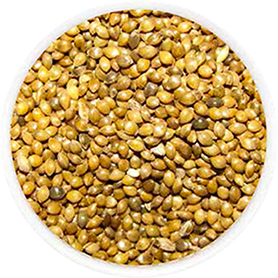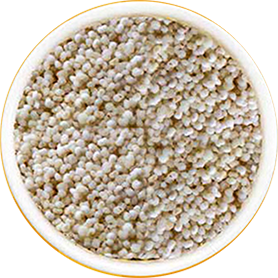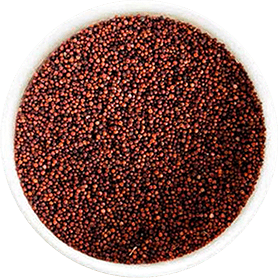
Extensively grown in the dry areas of India, especially southern India and is a staple for the rural population of south India.
Contains high amounts of calcium, proteins along with vitamin A, vitamin B and phosphorous. Its high fibre content prevents constipation, high blood pressure and intestinal cancer.
Demonstrated ability of controlling blood glucose levels and hyperglycemia, making it ideal for diabetics.
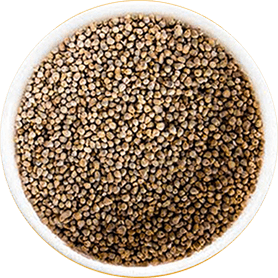
Pearl millet is gluten free and retains its alkaline properties even after being cooked which is ideal for people suffering from gluten allergy and acidity.
Critically important for food and nutritional security as it has several advantages while growing such as drought tolerance, minimal input requirement, etc.
Grains have high protein content, balanced amino acid profile, and high levels of iron, zinc, and insoluble dietary fiber.
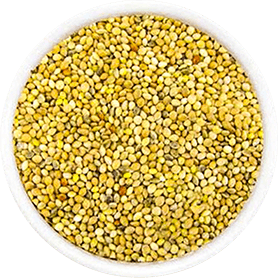
Important minor millet grown in India. It is able to evade drought by being a short duration crop with relatively low water requirement.
It has been shown to reduce cholesterol levels and also reduce the risk of heart diseases. It also prevents breast cancer among other diseases.
Completely gluten free and has significant amounts of carbohydrate and fatty acids.
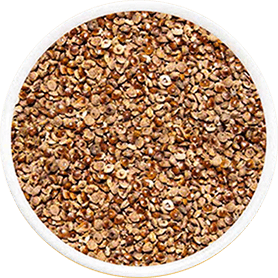
High protein content (11%), low fat content (4.2%) and very high fibre content (14.3%).
Regular consumption of Kodo millet is beneficial for postmenopausal women suffering from signs of cardiovascular disease like high blood pressure and high cholesterol levels.
Easy to digest and excellent for strengthening the nervous system.
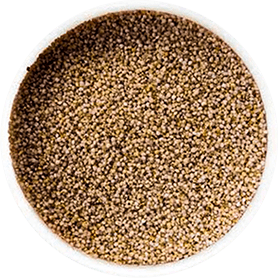
World's fifth major cereal food crop in terms of production and acreage.
One of the most energy efficient crops in the use of solar energy and water to produce food and biomass.
It has inherent drought tolerant nature and can be grown under wide range of environmental conditions.
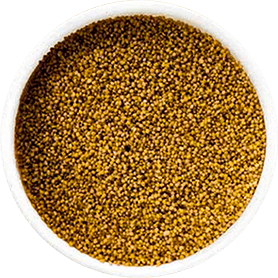
Ranks 2nd among millets production in the world
Rich in dietary fibre, minerals, micronutrients, protein, and has low glycemic index (GI).
Used as an energy source for pregnant and lactating women.

